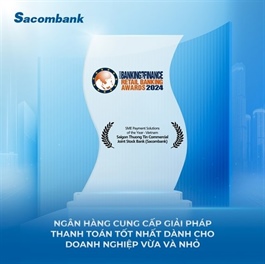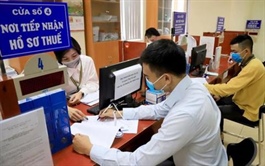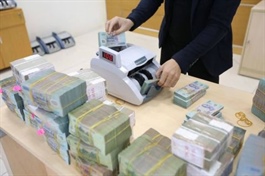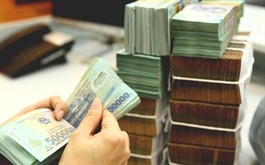Strong remittance flows bring boost to the south
Strong remittance flows bring boost to the south
Remittance flows to southern Vietnam in particular continue to grow strongly, with early implementation of the new Land Law expected to drive real estate growth towards 2025.

new regulations on property ownership for overseas Vietnamese under the 2024 Land Law, effective from August 1, will facilitate investment and property ownership, leading to increased remittances into the real estate market, according to Dr. Nguyen Van Dinh, vice chairman of the Vietnam National Real Estate Association.
“To attract this capital, regulatory agencies need to not only implement the Land Law effectively but also continue investing in infrastructure improvements, such as transportation, telecommunications, and other public services, to enhance market competitiveness. Additionally, reducing or exempting taxes for overseas Vietnamese investing in real estate would be beneficial,” Dinh said.
However, attracting remittance flows and utilising this valuable resource effectively requires attention and implementation, said Nguyen Duc Lenh, deputy director of the State Bank of Vietnam’s (SBV) Ho Chi Minh City branch.
“Orienting and focusing remittance resources on developing production, business, and service sectors through financial instruments like municipal bonds, investment funds, or securitisation is a strategic solution,” said Lenh. “This aligns with Ho Chi Minh City’s green economy and digital economy development goals, high-quality education and healthcare, modern technology applications, tourism services, and investment areas of interest to overseas Vietnamese. Among these, microfinance models for agriculture, rural areas, and farmers, supported by remittances, have proven effective.”
According to a report released by the SBV’s Ho Chi Minh City branch last week, remittances to the city in the first half of 2024 reached nearly $5.2 billion, equivalent to 54.7 per cent of the total remittances for the entire year of 2023 and representing a 19.5 per cent increase compared to the same period last year.
Of this amount, remittances from Asia continue to account for the largest share, at 56.1 per cent, and have increased by 48.5 per cent compared to the same period last year.
In the second quarter alone, remittances amounted to $2.31 billion, a 19.5 per cent decrease compared to the previous quarter. This reduction is typical, as the first quarter often sees a surge in remittances to Vietnam due to the Lunar New Year.
Lenh of the SBV’s Ho Chi Minh City branch noted that human resources and the vibrant labour market continue to positively impact the volume of remittances from the Asian continent to Vietnam in the first half of 2024 as key Vietnamese labour export markets like Japan, South Korea, and Taiwan have managed to find their own pathways despite global economic turbulence and intense economic competition among major countries.
“If foreign loans and investment capital must adhere to repayment principles, borrowing conditions, and other related pressures, remittances do not face these constraints,” Lenh said. “Recipients are free to use the remittance money as they want, without being constrained by regulations from the sender or regulatory authorities, including maintaining certain financial ratios, restricting additional borrowing, or requiring the use of funds for specific purposes. Therefore, effectively utilising remittances brings significant benefits across various sectors, from individuals and households to economic and social development.”
An increase in remittances is a positive factor that boosts the domestic foreign currency supply, contributing to the stabilisation of the exchange rate, and stabilising the exchange rate will help stabilise the macroeconomy for the remainder of the year, Lenh added.
The exchange rate has increased by nearly 5 per cent in the first half of this year, leading to slower foreign direct investment (FDI) growth compared to the same period last year, and significant net selling by foreign investors in the stock market.
“Thus, any factor that helps stabilise the exchange rate at this stage will contribute to economic stability for the last six months of 2024,” said Do Bao Ngoc, deputy CEO of CSI Vietnam Construction Securities.
Alongside FDI flows, the volume of remittances has contributed to increasing the foreign currency supply, meeting domestic demand, supplementing resources for maintaining exchange rate policies, and promoting growth in economic sectors, including capital-starved real estate, said a representative from the SBV.


























